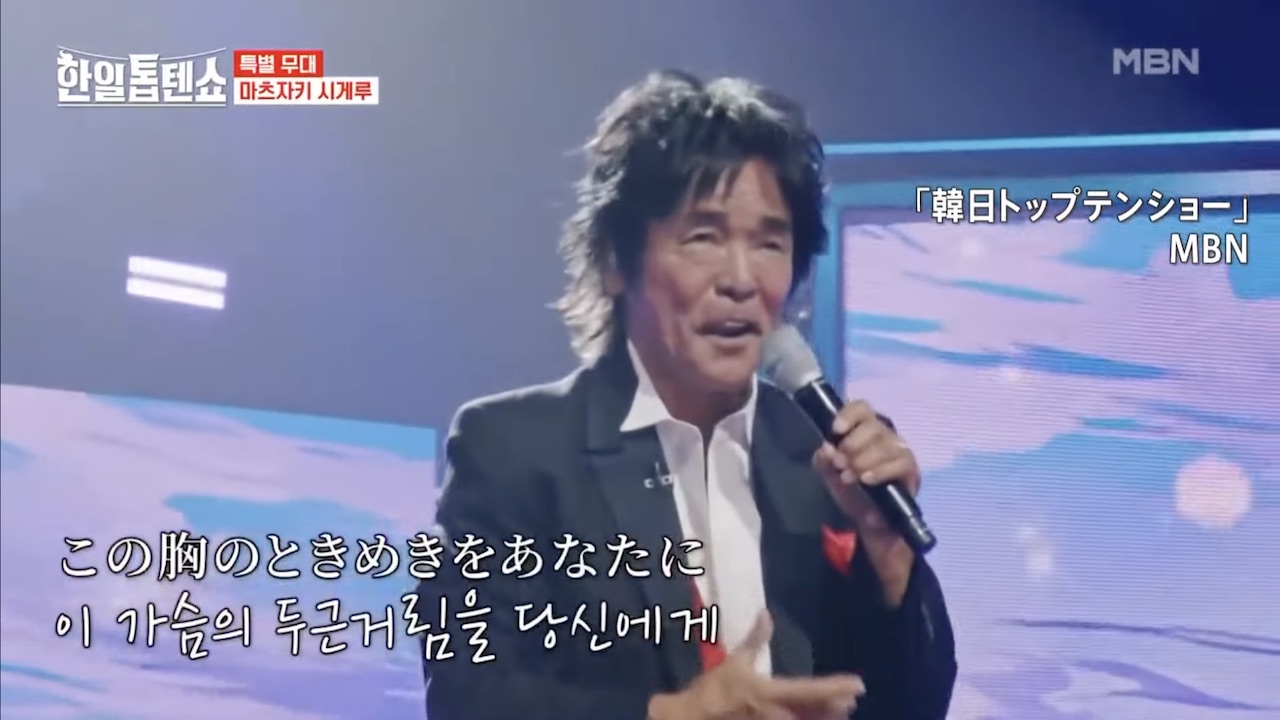SEOUL, Aug 08 (News On Japan) - Shigeru Matsuzaki, a renowned Japanese singer, has gained significant popularity in Korea, shedding light on the intricate history and current dynamics between the two nations.
Last month, Matsuzaki's performance was featured on a major South Korean TV show, "MBN," and the video of his performance uploaded on YouTube has surpassed one million views.
In this popular singing competition where Japanese and Korean artists showcase their vocal talents, social media buzzed with comments such as:
‘Incredible singing ability!’
‘Like a well-aged whiskey.’
‘Who said Japanese can’t sing? We were frogs in a well.’
Historically, it has been rare for Japanese songs to be broadcast on Korean TV. Until around the year 2000, South Korea had legal restrictions on Japanese culture. Even after these restrictions were lifted, TV stations continued to self-regulate Japanese content due to lingering anti-Japanese sentiments.
Breaking this trend, "MBN" made a bold decision to air a program featuring Japanese music from April, achieving high viewership ratings.
How do Korean people perceive Japanese music today?
At a karaoke bar in Seoul, young Koreans sing Japanese songs. Approximately 20% of the songs sung at the bar are Japanese. The most popular Japanese song currently sung in karaoke is Seiko Matsuda’s 'Blue Coral Reef,' which gained attention after being performed by a member of the K-pop group NewJeans during a concert at Tokyo Dome.
Interest in nostalgic Japanese music has been rising as well.
A reporter observed, 'This is a café that plays Japanese hits from the 1980s.'
The café, which opened this year, is filled with young patrons enjoying the retro tunes.
A customer in their 30s remarked, 'It feels very emotional and warm, bringing back old memories.'
Another in their 20s shared, 'Listening on the bus ride home helps me unwind and organize my day.'
Experts attribute the acceptance of Japanese songs to the global success of K-pop.
Cultural critic Lee Mun-won commented, 'With the global popularity of K-pop, Koreans have gained confidence in their own culture, reducing the inferiority complex towards Japanese culture.'
It appears that Japanese music will continue to gain traction in South Korea.
Source: TBS
















